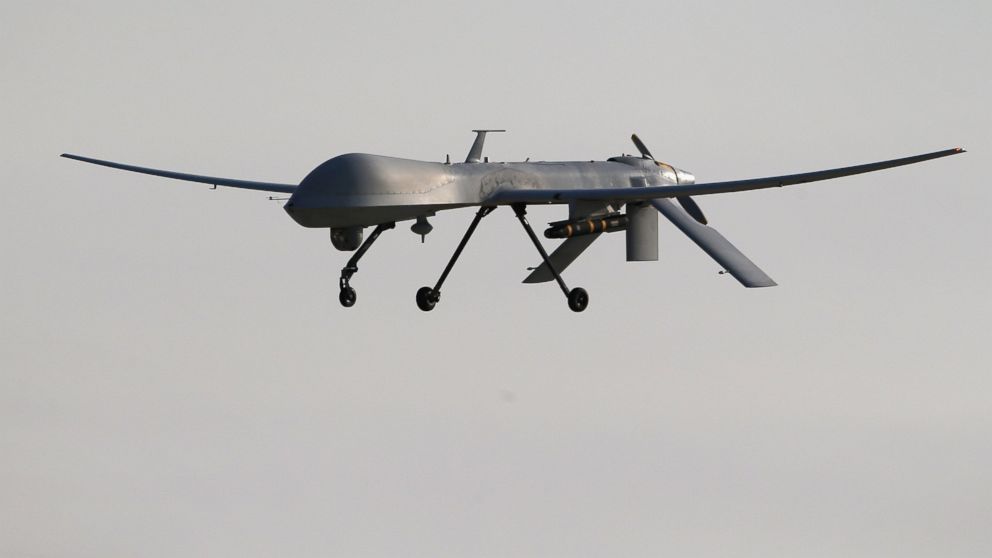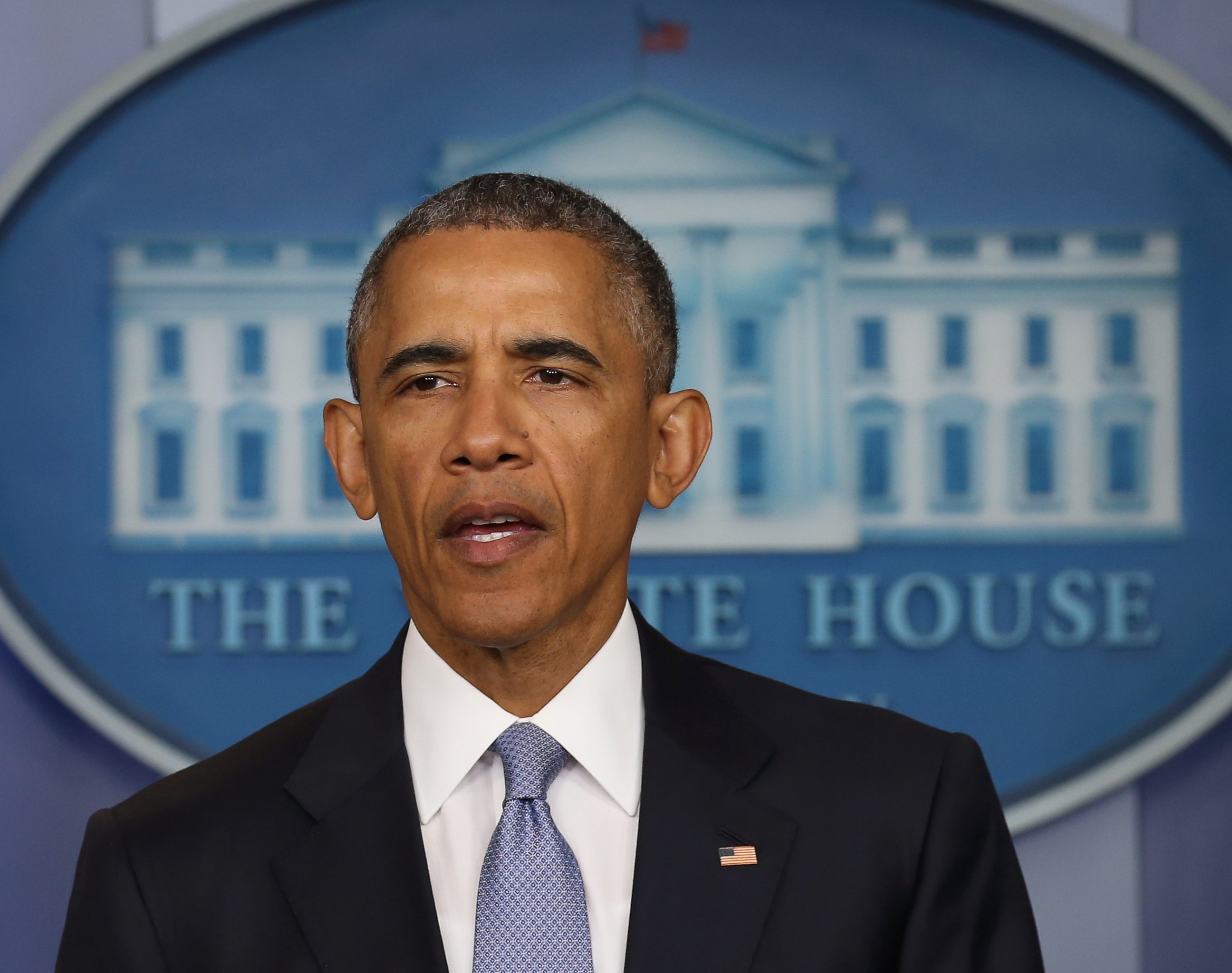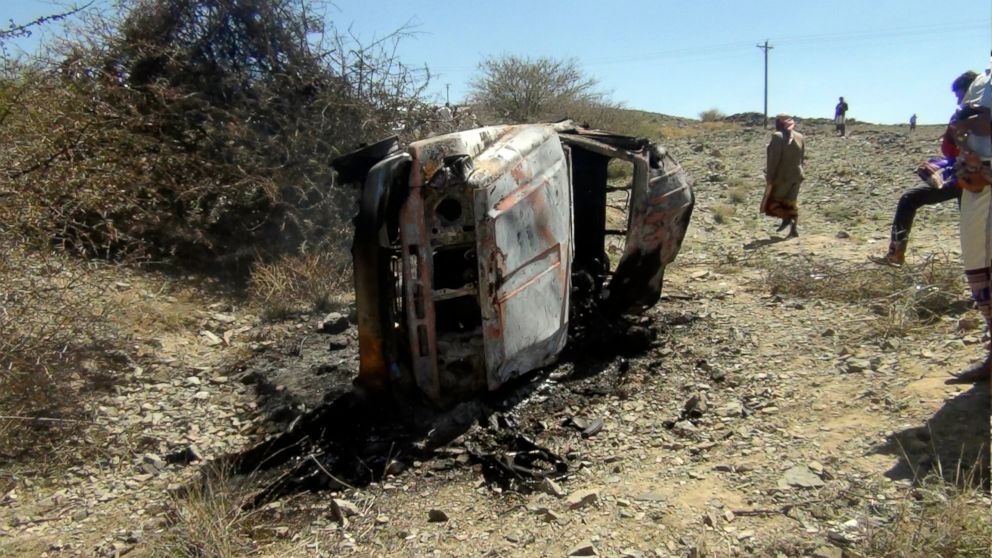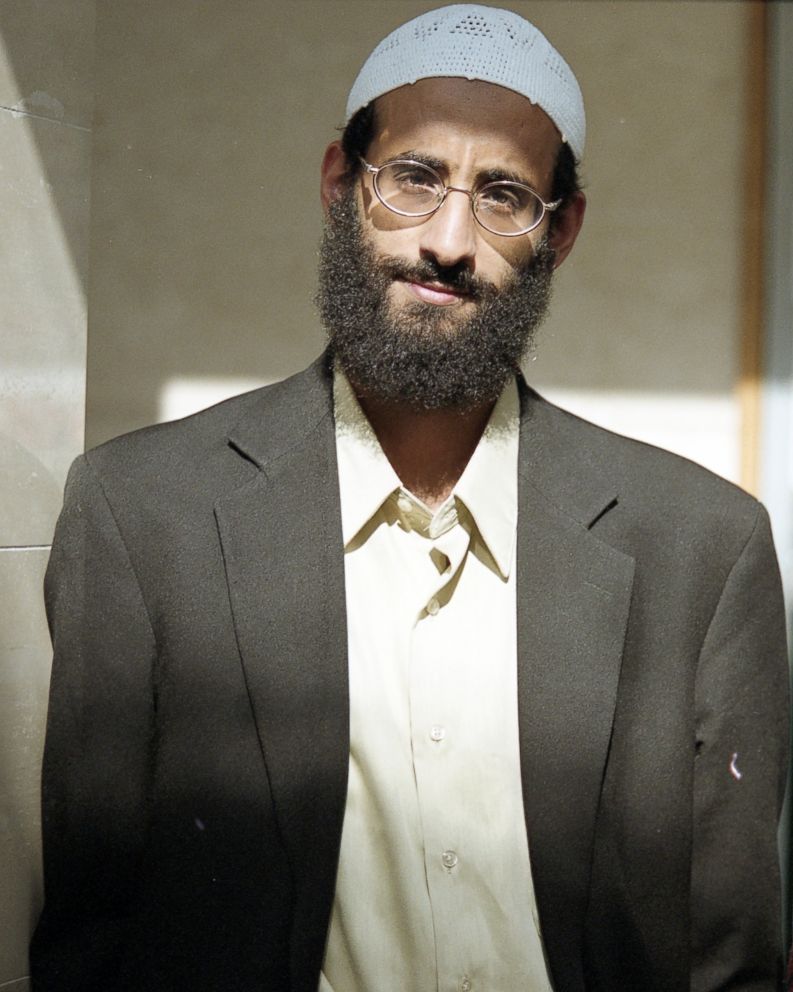For Families of Drone Strike Victims, Government Statistics Likely to Provide Little Solace
Muhammed al-Qawli says a U.S. drone strike killed his brother and his cousin.

— -- Muhammed al-Qawli was at home in his village in eastern Yemen spending time with friends on the night of Jan. 23, 2013, when he heard the explosion that he said killed his younger brother Ali and his cousin Salim.
He told ABC News that at around 9 that night, he, along with other villagers, followed the sound of the blast through the dark and cold until they joined a crowd of onlookers who had formed a circle around a burning pickup truck.
He said his heart sank when he recognized the vehicle as his cousin's. Salim, a student who earned extra money by running a taxi service with the truck, had used it to take Ali to a nearby market that afternoon, al-Qawli later learned from witnesses. They picked up a group of strangers to transport them between villages, and between destinations, al-Qawli said the witnesses told him, a suspected U.S. drone strike hit the truck.
Al-Qawli said what he saw and experienced that night still haunts him: The splintered body parts of eight passengers lay scattered in the flames, the smell of burning flesh hanging heavy in the air.
Ali's body was so mangled, he had to be identified by his teeth, al-Qawli said. Ali was 33 years old and left behind a wife and three children. Salim, 22, was identified by the pants that he wore, according to al-Qawli. Neither of them, al-Qawli said, were terrorists.

On Friday the White House announced that 64 to 116 civilians have died from U.S. airstrikes outside "areas of active hostilities" during President Barack Obama's term, but it is unknown whether Salim and Ali are part of that official tally, because the names of victims were not included in the report. The estimate also does not cover drone strikes in Afghanistan, Iraq or Syria, where there are active hostilities, under the administration's definition.
In addition to the statistics, the administration issued an executive order that called on the Office of the Director of National Intelligence to publish annual reports on civilian and combatant casualties resulting from counterterrorism operations in nations where Congress has not approved military action, as well a mandate for increased training of the military personnel involved in such operations and other policies, in an effort to reduce civilian casualties.
It is unclear whether future presidents will abide by the order.
Friday’s announcement came after pressure placed on the administration from a number of organizations, including the ACLU, which has filed a series of Freedom of Information Act lawsuits in an effort to learn more about the Obama administration's drone strike program.
Jameel Jaffer, a deputy legal director of the ACLU, told ABC News that the organization wants to remove the layer of secrecy that covers the subject of drone strikes, which are a major part of Obama's foreign policy legacy.
"President Obama has claimed very broad power to use lethal force on the battlefield and off regarding these strikes," Jaffer told ABC News by phone before Friday's announcement, referring to the fact that Congress has not formally authorized military operations in many of the countries where drone strikes are conducted. "Now the precedent created by his policies will be in the hands of another president and another president after that."
He added, "Mr. Obama's drone policy to this point should trouble people who believe in checks and balances, and it should be subject to meaningful oversight."
The administration declared in Friday's release that the strikes are "consistent with our values and all applicable law" and that the program has "resulted in extraordinarily precise targeting." As for the purported strike that took the lives of al-Qawli’s cousin and brother, Ned Price, a spokesman for the National Security Council, said the administration could not comment on "specific purported operations."
Dave Deptula, a retired three-star general who served as the senior Air Force official in charge of policy guidance and direction of that service branch's drone program from 2006 to 2010, spoke to ABC News by phone before Friday's announcement and said that criticism of drones stems from a misunderstanding of what they are and how they work.
He said that while any civilian casualty is tragic, terrorists were to blame for starting the conflicts. He said that the media have created a culture of "negativism" around drone strikes and that they are more precise and lead to fewer casualties than conventional weaponry.
But critics complain of a lack of transparency surrounding the drone program. The information provided by the Obama administration on Friday is lacking critical details, according to Jennifer Gibson, an American-born lawyer for the U.K.-based human rights group Reprieve. She leads the group's work on drone strikes and represents al-Qawli and other family members of alleged victims of U.S. drone strikes by providing advocacy and legal counsel.
She said that the White House's announcement raises "questions of standing" because the number of those estimated to have been killed by drone strikes is so much lower than independent estimates by nonprofit organizations like New America and the Bureau of Investigative Journalism.
In Friday’s report, the administration acknowledged differences between its assessments and reporting from nongovernmental organizations. "Although the U.S. government has access to a wide range of information, the figures we are releasing today should be considered in light of the inherent limitations on the ability to determine the precise number of combatant and noncombatant deaths outside areas of active hostilities, including the nonpermissive environments in which these strikes often occur," it stated.
But that explanation failed to satisfy critics of the drone program.

"The Obama administration has spent seven years spinning tales about who they are killing in drone strikes, and now we are finally getting an official estimate but without any context for how it was calculated," Gibson told ABC News. "Without context, without faces or names, the numbers released today are meaningless and give us no basis to challenge the president's account of events."
The announcement from the White House does not adequately explain the methodology for how the numbers were calculated, according to Gibson, because the report does not cite specific missions.
Al-Qawli, who seeks an acknowledgement from Obama that the strike occurred, along with an apology, is not likely to be satisfied by the report's content, she said.
"I can't go to Muhammed and say that your brother and your cousin were included in these numbers," Gibson said.
Al-Qawli has since formed a group for families affected by drone strikes, the National Organization for Drones Victims, in order to draw attention to their plight.
The numbers of civilians killed by U.S. drone strikes has been a source of controversy for years, and precise data sets have been difficult to verify because of government secrecy on the subject and a scarcity of firsthand reports from areas where drone strikes take place.
In April, Obama told the press in reference to drone strikes, "There's no doubt that civilians were killed that shouldn't have been" — a change in tone from 2012, when he told an online forum, "Drones have not caused a huge number of civilian casualties."
According to documents that a whistleblower provided to The Intercept in 2015, for example, "nearly 90 percent" of the people killed in airstrikes during Operation Haymaker, a five-month military operation in 2012 targeting al-Qaeda operations in eastern Afghanistan, were "not intended targets." A current U.S. official and a former one who were involved in drone operations told ABC News at the time that the unintended targets were often suspected militants traveling to or at meetings with intended targets.
Deptula said that he believes people would not be as critical of the program if the casualties were caused by manned airstrikes and that people misinterpret the word "drone" to mean that strikes are being conducted by an army of robots.
"Nothing could be further from the truth," he said. "There is a real human being controlling a Predator drone."

T. Mark McCurley, a former airman who helped pilot the mission that killed American-Yemeni imam and senior al Qaeda member Anwar al-Awlaki, and wrote "Hunter Killer," a book about his experience, spoke to ABC News before the government's announcement. He echoed Deptula's point about people operating drones and said he believes that some of the stigma is related to the technology. He said that drones mostly conduct surveillance and that the amount of reconnaissance data they have been able to gather is "more than could ever be used." McCurley acknowledged that advancements in drone technology have led to a new era of warfare, in which operations can be conducted from anywhere remotely.
"This is science fiction come to life," he said.
Army Chaplain Christopher John Antal, who resigned in protest over the U.S. policy surrounding drone strikes, told ABC News by phone after the announcement that the White House did not explain enough about what the strikes were trying to achieve.
"There's a deafening silence from administration about the long-term strategy of using drone strikes," he said.



